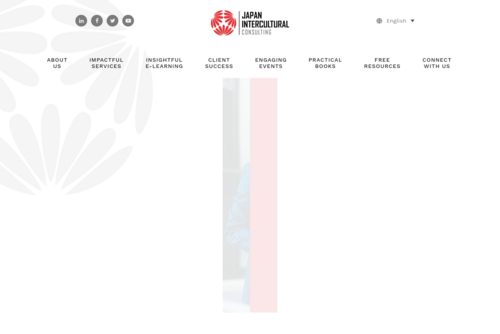For western countries, meetings are for resolving conflicts, reaching group decisions, and problem solving…In contrast, the Japanese view meetings as a place to confirm things that have already been decided, and to report and share information.
Read More
These stories submitted by JapanIntercult will be featured BizSugar's homepage
Nemawashi or Debate? -- Cross-Cultural Meetings Part 1

From http://www.japanintercultural.com 4361 days ago
The various roles of Japanese expatriates

From http://www.japanintercultural.com 4379 days ago
Many of the Japanese expatriates at my clients’ subsidiaries in the U.S. don’t have a clear idea of what their role is. Given vague titles like “Coordinator” or “Liaison”, they aren’t sure where they fit into the local organization…
Read More
Shanai shoshin - Promotion from within

From http://www.japanintercultural.com 4382 days ago
The old practice of lifetime employment has started to fray at the edges…Yet, even while making greater use of flexible staffing, Japanese companies tend to maintain a “core” staff who are the ones destined to be promoted from within.
Read More
Shushoku Katsudo - Job Hunting in Japan

From http://www.japanintercultural.com 4385 days ago
In the U.S., professors typically do not have contact with companies in the recruiting process. In Japan your professor determines not only your grades but also holds the key to determining your future job prospects!
Read More
Working with Japan - Let’s have lunch

From http://www.japanintercultural.com 4389 days ago
In Japan, the lunch break is Noon to 1:00pm. All work stops and everyone goes to lunch at the same time…Americans work at their desks through lunch or get their food from a drive-through window, returning calls and emails while waiting in line…
Read More
HoRenSo – (Report, Contact and Consult)

From http://www.japanintercultural.com 4391 days ago
Using the HoRenSo system to keep in close communication with the Japanese may seem time-consuming, but it will increase their trust in your decision-making ability…by not fixing everything on your own, you actually gain more trust and authority.
Read More
Power harassment

From http://www.japanintercultural.com 4400 days ago
Being harsh towards one’s subordinates is often encouraged in Japanese culture, and a blind eye is turned toward yelling and other harsh treatment. For many Japanese, a tough boss is the only kind of boss they have ever had, so this kind of management style seems normal to them.
Read More
Public criticism from Japanese managers

From http://www.japanintercultural.com 4404 days ago
Non-Japanese employees of Japanese firms frequently mention the penchant that many Japanese managers have for public criticism. Whereas Americans would prefer to receive negative feedback in private, Japanese seem to prefer to give it in public.
Read More
Read More
Age discrimination - Japanese companies in the U.S.

From http://www.japanintercultural.com 4410 days ago
Due to different concepts of what constitutes discrimination in the U.S. and Japan, the Japanese managers at Mitsubishi may not have been aware of the dangers of age discrimination. Although age discrimination became illegal in the United States in the 1970s, no such law exists in Japan.
Read More
Engineering culture gap for Japanese firms

From http://www.japanintercultural.com 4414 days ago
Methods used to manage engineers in Japan often do not meet the expectations of non-Japanese engineers. This results in disruptive high turnover rates, and difficulty transferring technology.
Read More
Read More
Subscribe
![]() “Rachel: Great to hear! Thanks for your kind words! :)
All the Best,
Martin...”
“Rachel: Great to hear! Thanks for your kind words! :)
All the Best,
Martin...”
![]() “Thank you, Martin. That's a fantastic motto... and I couldn't agree more!...”
“Thank you, Martin. That's a fantastic motto... and I couldn't agree more!...”
![]() “Lisa: Good to hear! Thanks for your response....”
“Lisa: Good to hear! Thanks for your response....”
![]() “For sure, I know I did years ago when I was working for others....”
“For sure, I know I did years ago when I was working for others....”
![]() “Lisa: I wonder if they potential employee is doing a background check on...”
“Lisa: I wonder if they potential employee is doing a background check on...”







